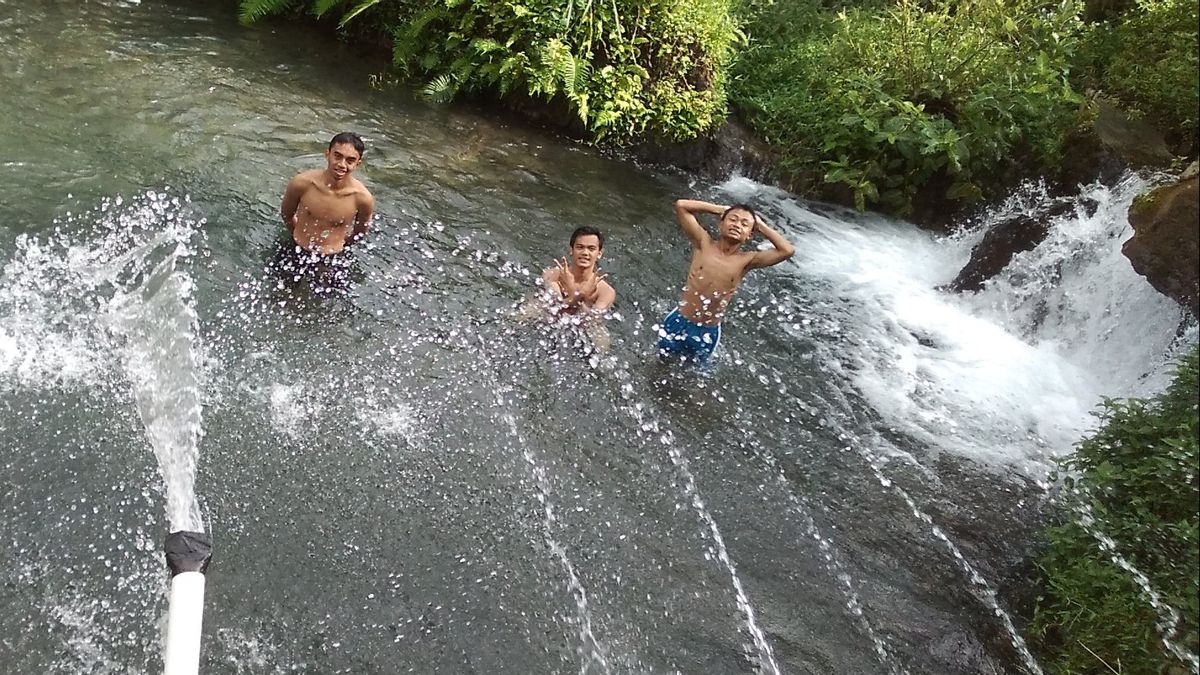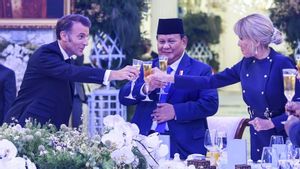JAKARTA - Padusan is a ritual that many people do in Java Island, especially those in Central Java, Yogyakarta, and surrounding areas. Padusan went through a long history until its implementation changed. In times of pandemic, we are reminded again of true padusan rituals: silence, contemplation, and contemplation.
Padusan is a ritual of physical and spiritual cleansing to welcome ramadan. Collected from various sources, padusan ritual has existed since the time of Hamengkubuwono I. Padusan comes from Javanese language, namely 'adus' which means bathing.
In the past, people did padusan in the springs and ponds of the mosque. People do padusan with the aim that when Ramadan arrives, they can perform worship in the holy state of birth and mind.
Padusan in the middle of the pandemicIn Klaten, Central Java, authorities banned padusan rituals. Restrictions were put in place to prevent the transmission of COVID-19 due to crowds.
Acting Head of the Cultural Office of Youth Tourism and Sports Government Klaten Sri Nugroho said, "While the agenda of Padusan tradition in Klaten was abolished to prevent the spread of the Covid-19 virus," he said, quoted Kompas.com.
It's not just padusan. The agency also prohibits any event involving crowds. Although Padusan was abolished, water tourism in Kelaten remained operational.
The operating hours start at 08.00-15.00 WIB. According to Sri Nugroho, the operation of tourist attractions will be accompanied by a tightening of health protocols.
Padusan philosophyThis condition reminds us of padusan philosophy. Padusan is a medium of reflection as well as introspection of various mistakes made in the past.
Therefore, padusan is actually recommended to be done in a quiet place. Thus, padusan rituals are expected to be more solemn.
This ban on crowding is a kind of reminder of the basic values of padusan. In silence, awareness of becoming a better person will arise.
Silence is also expected to bring awareness and confidence for a person to enter the month of Ramadan better. Penghageng Tepas Dwarapura (Public Relations) Of Yogyakarta Palace KRT H. Jatiningrat once explained the emphasis on padusan.
To Liputan6.com he explained the important emphasis, where men and women have to do separate padusan. Father Tirun -- his familiar greeting -- also said the number of shifts that have occurred since the 1950s.
At that time people began to mix in bathing places other than springs and mosque pools. Padusan's meaning and philosophy are shifting.
Males and females begin to mix in padusan in public baths. Other shifts can be seen from the clothes worn, which are often tight or anything else that is far from the norm of modesty.
Padusan at homeWith a padusan philosophy that emphasizes specificity, we can actually do padusan at home. Takmir Office Manager of Kauman Mosque Yogyakarta Waslan Aslan said the important point of padusan is a moment of contemplation.
Therefore, padusan can also be done at home. Waslan said, the important point of padusan ritual is intention, where it should be aimed at cleansing the heart.
So the place doesn't matter. However, as explained above, padusan must be done in the right way and according to islamic adab.
So, it is not recommended to wear tight clothing let alone mix between women and men.
*Read more information about RAMADAN or read other interesting writings from Yudhistira Mahabharata.
Other BERNAS
The English, Chinese, Japanese, Arabic, and French versions are automatically generated by the AI. So there may still be inaccuracies in translating, please always see Indonesian as our main language. (system supported by DigitalSiber.id)











